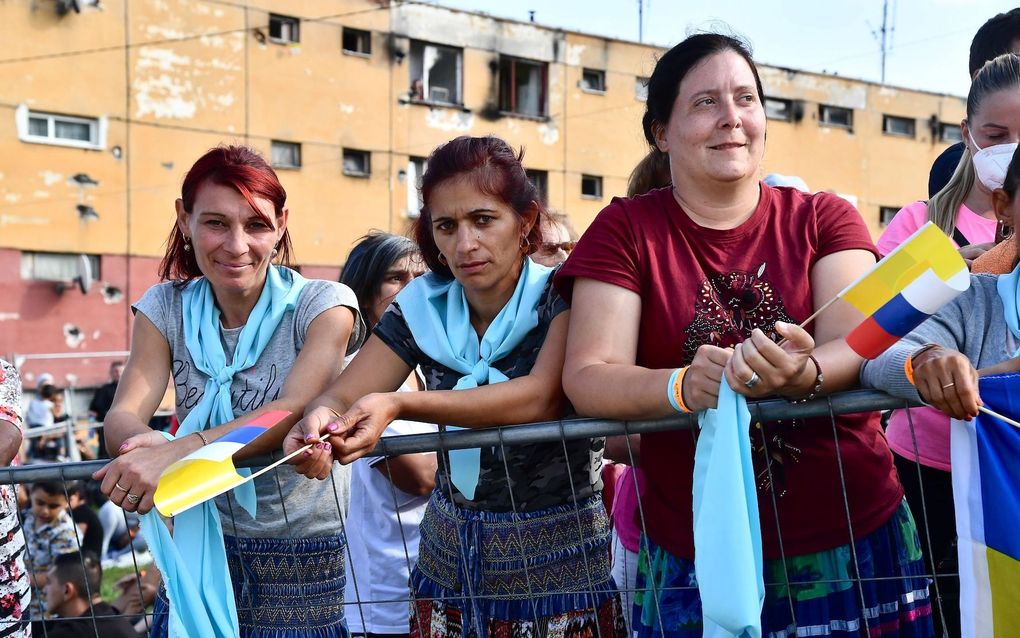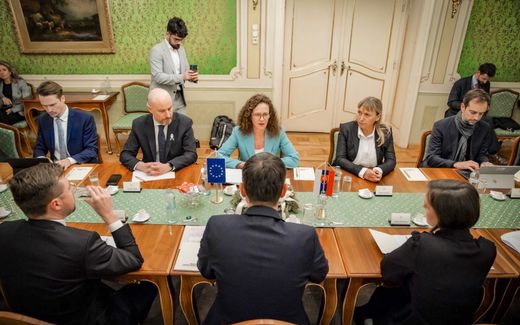Slovakia under pressure from Strasbourg to compensate Roma because of sterilisation

Roma women in Slovakia waiting for the Pope to visit their community, September 2021. Photo EPA, Luca Zennaro
Central Europe
Slovakia should resolve the issue of forced sterilisation of Roma women. Currently, there is a “historic opportunity” to compensate the victims.
In a letter earlier this week, the Human Rights Commissioner of the Council of Europe, Dunja Mijatovičová, said that.
She wrote on Monday to the Slovak Parliament, the newspaper Standard reports. In the letter, she welcomed the efforts of the Slovakian government to achieve justice by adopting a compensation law.
Common practice
Thousands of Roma women in Slovakia have been forcibly sterilised. This practice started in 1966 and was stopped by new legislation in 2004. In several Socialist countries, this was a way to limit births, especially in marginalised communities. The idea was that the state had to protect the Roma people against themselves.
It is not clear how many women were sterilised, but it is clear that it was a common practice. One-fifth of Slovakia belongs to the Roma, one of Europe’s most marginalised groups. In November 2021, the government apologised about sterilisation. At the moment, the parliament is discussing legislation to compensate the women.

In her letter addressed to the parliament, Mijatovičová reminded her of her earlier remarks about the compensation mechanism. “The current legislative process offers a historic opportunity to address this longstanding injustice finally. It is essential to ensure that the future compensation mechanism effectively provides victims with the compensation they are entitled to,” said the commissioner.
She has observed similar processes in other countries, like the Czech Republic.
Amount
The commissioner pointed out that the proposed amount of money is far less than the amounts awarded by the European Court of Human Rights (ECHR) and Slovak courts. And she also pointed out that the proposed two-year period may be too short to allow all the injured women to file a compensation claim.
Mijatovičová made proposals to make the application more accessible to victims. She also emphasised the importance of working closely with victims during the legislative process.
Related Articles







